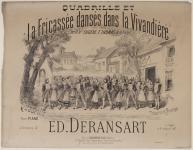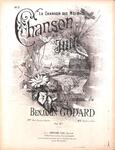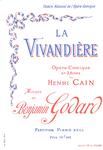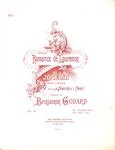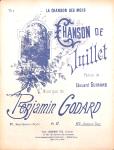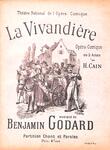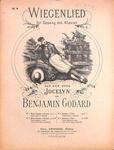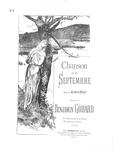
Benjamin GODARD
1849 - 1895
Conductor, Composer, Violinist
A child prodigy on the violin and a pupil of Richard Hammer and Henri Vieuxtemps, Benjamin Godard entered the Paris Conservatoire, where he studied composition with Henri Reber. Despite twice failing the Prix de Rome competition, he was a prominent figure in French musical life in the early years of the Third Republic: Godard performed both as a violinist and as a pianist, although he was highly valued as a violist in the various quartets with which he played, and his piano pieces were extremely well received in the salons. In his role as conductor, he founded the Société des Concerts Modernes in 1884 with the musicians from the Concerts Populaires, the orchestra formed by Jules Pasdeloup (who had just retired). From 1887, he taught the instrumental ensemble class at the Paris Conservatoire. His catalogue, which numbers about 150 works, includes examples of every genre: six operas, including Jocelyn (1888), famous for its “Berceuse”, and La Vivandière, which enjoyed considerable success after his death; various orchestral pieces, including several programme symphonies (Symphonie orientale, Symphonie légendaire with chorus, or Le Tasse, a dramatic symphony with soloists and chorus, for which he received the Prix de la Ville de Paris in 1878); several concertos, assorted chamber works and a prolific output of songs and piano music. Initially regarded as a highly original, idiosyncratic composer, a major representative of the modern French school, Godard’s style did not reflect the stylistic musical changes that occurred in France in the 1880s. Alarmed by the influence of Wagner on his generation, Godard remained true to his own musical language, which stemmed from a romanticism inspired by Chopin, Mendelssohn and Schumann. His career came to a premature end: due to delicate health, Godard was forced to leave Paris for Cannes, where he died in 1895.
Scientific publications
Articles
Godard’s Dante
Articles


